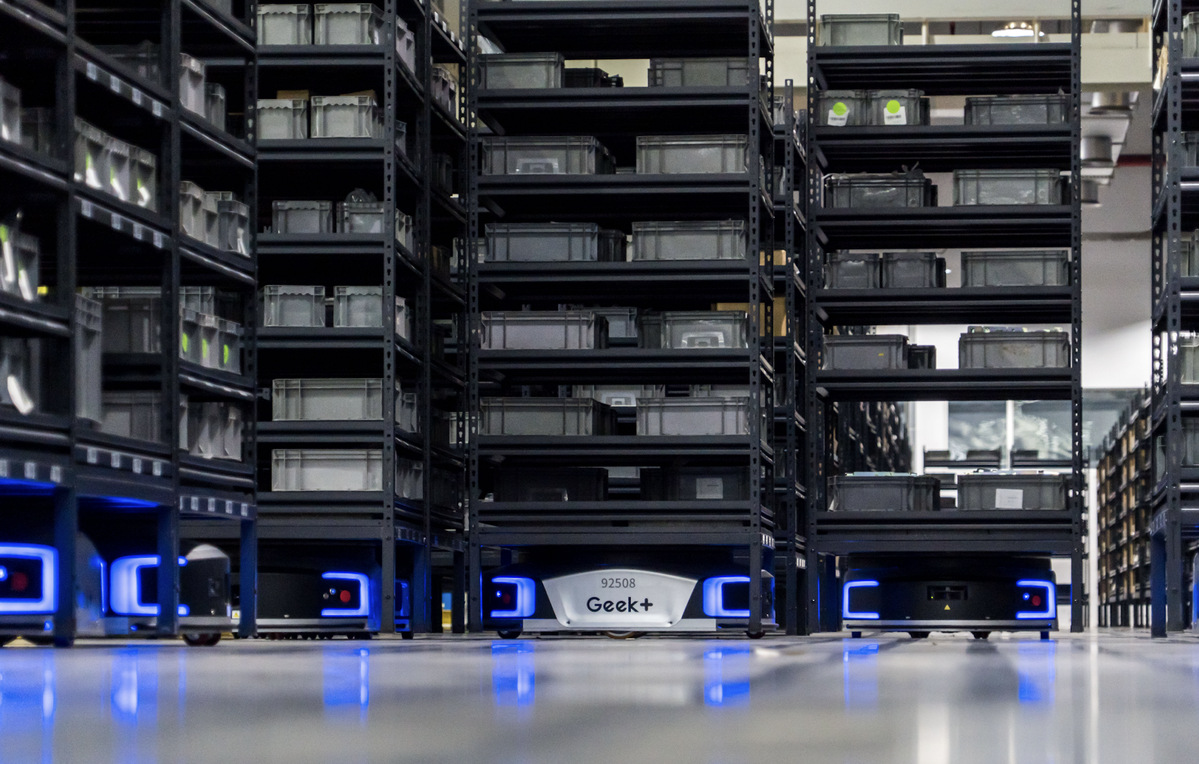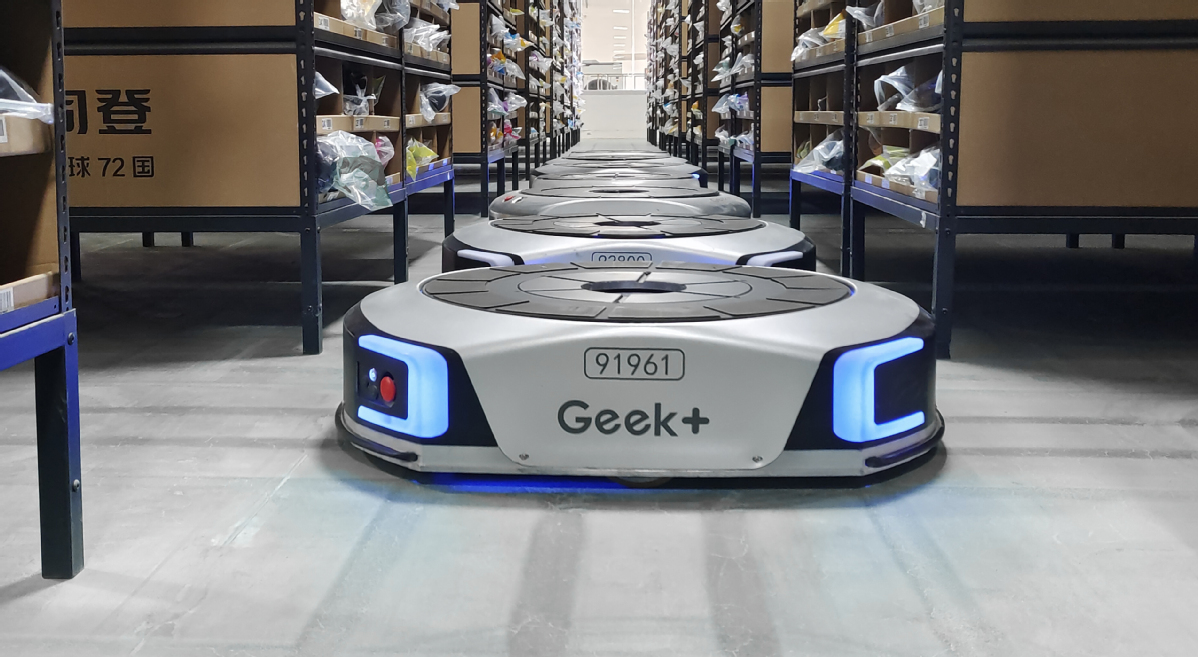Logistics robots driving China's high-quality growth
By Yu Xiaoming | chinadaily.com.cn | Updated: 2023-07-14 14:43

Logistics robots have become an engine for the logistics industry in China's high-quality development, an executive of intelligent robot startup said.
Logistics innovation is the core for warehouses to realize intelligent transformation and upgrading, Geek+ China marketing director Liu Yanyu said on Thursday in Beijing.
Founded in 2015, Geek+ is a startup based in Chaoyang district, Beijing, providing logistics products and solutions to help companies transform and upgrade their logistics.
The company develops autonomous mobile-robot solutions to realize flexible, reliable, and highly efficient automation for warehouses and supply chain management.
PopPick System, the game-changing Geek+ picking system, boosts efficiency by over 300 percent, according to the company.

The logistics industry is an important application scenario for artificial intelligence and robot technologies, Geek+ CEO Zheng Yong said.
Compared with other sectors, logistics robots perform better in dealing with supply chain bottlenecks, large-scale commercialization, as well as market maturity, Zheng said, adding logistics robots manufacturers have boarder development prospects.
At present, Geek+ has served over 700 industry leaders in over 40 countries and regions worldwide, covering retail, apparel, pharmaceuticals, automotive, lithium batteries, photovoltaics and electronics.
The company is paying great attention to R&D investment in products and technologies, covering hardware, software and algorithms. So far, Geek+ has submitted more than 1,550 patents applications.
According to the Global Innovation Hubs Index 2022, jointly published by the Center for Industrial Development and Environmental Governance at Tsinghua University and Nature Research, Beijing, for the first time, surpassed London, ranking third in global innovative hubs.
Last year, the investment intensity of R&D expenditure stood at over 6 percent in Beijing, 2.7 times the national average level. By the end of 2021, Beijing was home of 102 unicorn companies, increasing 2.6-fold from 2015.
























